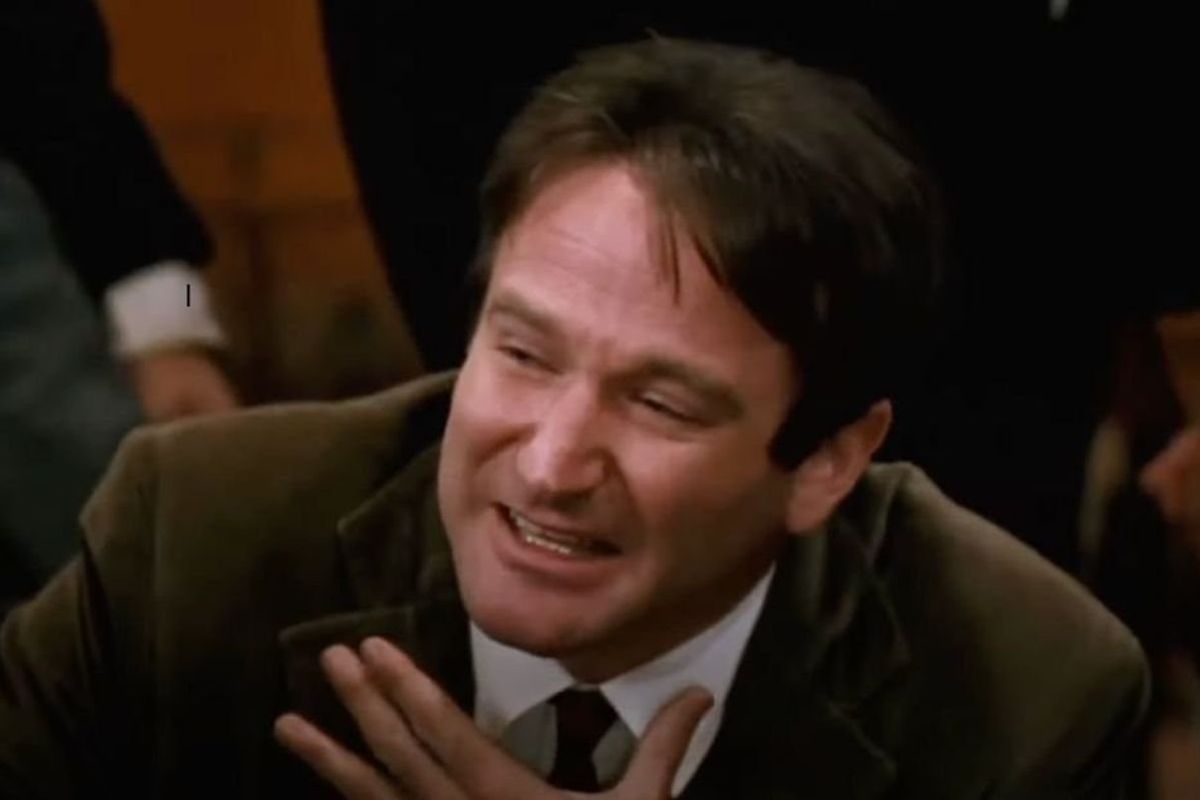Scott Shepard was in the Ku Klux Klan for 19 years and admits to encouraging violent attacks and acts of terror against people of color and the government.
Today, he says he's reformed.
Shepard is the focus of a short documentary by Independent Lens that profiles his journey toward an eventual harsh rebuke of the KKK and how his family — particularly the black woman who helped raise him — responded to his violent turn and eventual change of heart.
The film may even help prevent another tragedy, revealing the specific — and totally ordinary — reasons Shepard was radicalized, how he radicalized others, and what he'd say now to teens and other people feeling desperate to belong.
Like a lot of KKK members, Shepard says he joined because he felt isolated. He just didn't fit in anywhere.
Growing up in Indianola, he says he was an "angry child" who was drawn to other violent or extremist groups like the Italian mafia and the Irish Republican Army.
"I could've very well gotten involved with ISIS," he said in the film. "I was just looking for a place to fit in, to fill a void within myself."
When Shepard went to a rally in Tupelo, Mississippi, it changed his life.
There, he met with KKK members and leaders, and he finally felt he fit in somewhere. He officially joined at 16 or 17 years old in the mid-1970s.
All GIFs via PBS/Independent Lens.
Shepard quickly ascended the ranks of the KKK as a spokesman for the group and a successful recruiter.
He admits the playbook for recruiting new members never changed: It's as easy as offering angry, confused young people a place to belong. For many, that's all it took.
It's hard not to imagine what those kids' lives would have been like if a teacher, coach, faith leader, or another trusted adult got to them first.
Shepard's path toward redemption began when he was in rehab for alcoholism.
"I was forced to sit down with these people, and we shared life stories and intimate conversations," he said.
Building meaningful relationships with people from different backgrounds helped Shepard get on the path to atonement. After some soul searching, he walked away from the KKK in 1992.
Now, Shepard is doing his part to change himself and keep other teens from following a dangerous path.
He shares his story widely, speaking out against racism on TV and at numerous public appearances. His Twitter handle is even @reformedracist.
The advice Shepard gives to young people considering joining an extremist group is simple but powerful.
Though he wishes he'd gotten it many years ago, it's never too late to share with someone else at risk of being radicalized by extremists.
"First off, I'd tell you to find someone you trusted. And if they have problems with their parents, don't go to your parents. Go to someone you trust and talk to them about your feelings. They've gotta open up early. They can't take these feelings and hold 'em in ... for the rest of their life."
Shepard embraces Rebecca Hawkins, the black woman who helped raise him.



 Questions are more effective than facts when it comes to disagreements.
Questions are more effective than facts when it comes to disagreements. Asking people to elaborate leads to more open-mindedness.
Asking people to elaborate leads to more open-mindedness. Curiosity can help people get closer to consensus.
Curiosity can help people get closer to consensus. 
 A young girl has a tantrum. Photo credit:
A young girl has a tantrum. Photo credit: 
 Individual impact isn't as inspiring to Gen Z as it was to
Individual impact isn't as inspiring to Gen Z as it was to  Gen Z is much more black and white about behaviors than previous generations.
Gen Z is much more black and white about behaviors than previous generations. 
 Jimmy Carr became a dad in 2019.Albin Olsson/
Jimmy Carr became a dad in 2019.Albin Olsson/
 A teen girl getting a hug.
A teen girl getting a hug. A teen boy wearing headphones while looking at his phone.
A teen boy wearing headphones while looking at his phone.